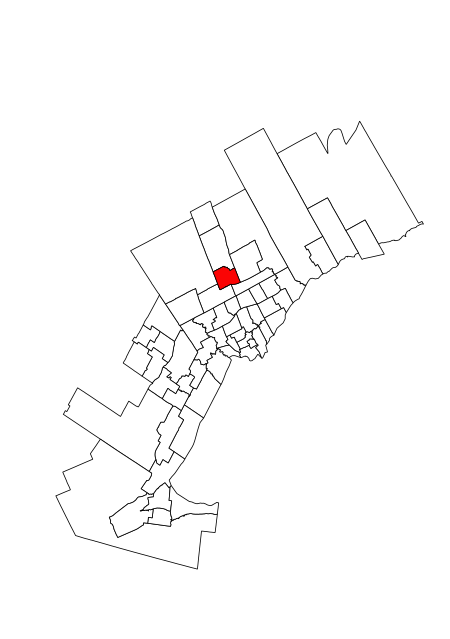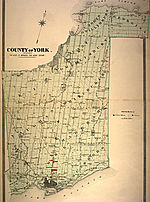Richmond Hill (federal electoral district)
2003 establishments in OntarioOntario federal electoral districtsPages with disabled graphsPolitics of Richmond Hill, OntarioUse mdy dates from November 2021

Richmond Hill is a federal electoral district in Ontario, Canada, that has been represented in the House of Commons of Canada since 2004. It was created in 2003 from parts of Oak Ridges riding. Following the 2022 Canadian federal electoral redistribution, this riding will be renamed Richmond Hill South at the first election held after approximately April 2024. It will gain all of Aurora—Oak Ridges—Richmond Hill south of Elgin Mills Road (Rouge Woods area).
Excerpt from the Wikipedia article Richmond Hill (federal electoral district) (License: CC BY-SA 3.0, Authors, Images).Richmond Hill (federal electoral district)
Carrer de les Carolines, Barcelona Gràcia
Geographical coordinates (GPS) Address Phone number Website Nearby Places Show on map
Geographical coordinates (GPS)
| Latitude | Longitude |
|---|---|
| N 43.87 ° | E -79.42 ° |
Address
Casa Vicens
Carrer de les Carolines 24-26
08001 Barcelona, Gràcia
Katalonien, Spanien
Open on Google Maps








